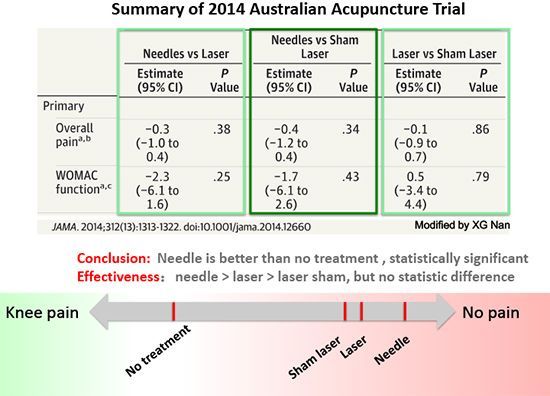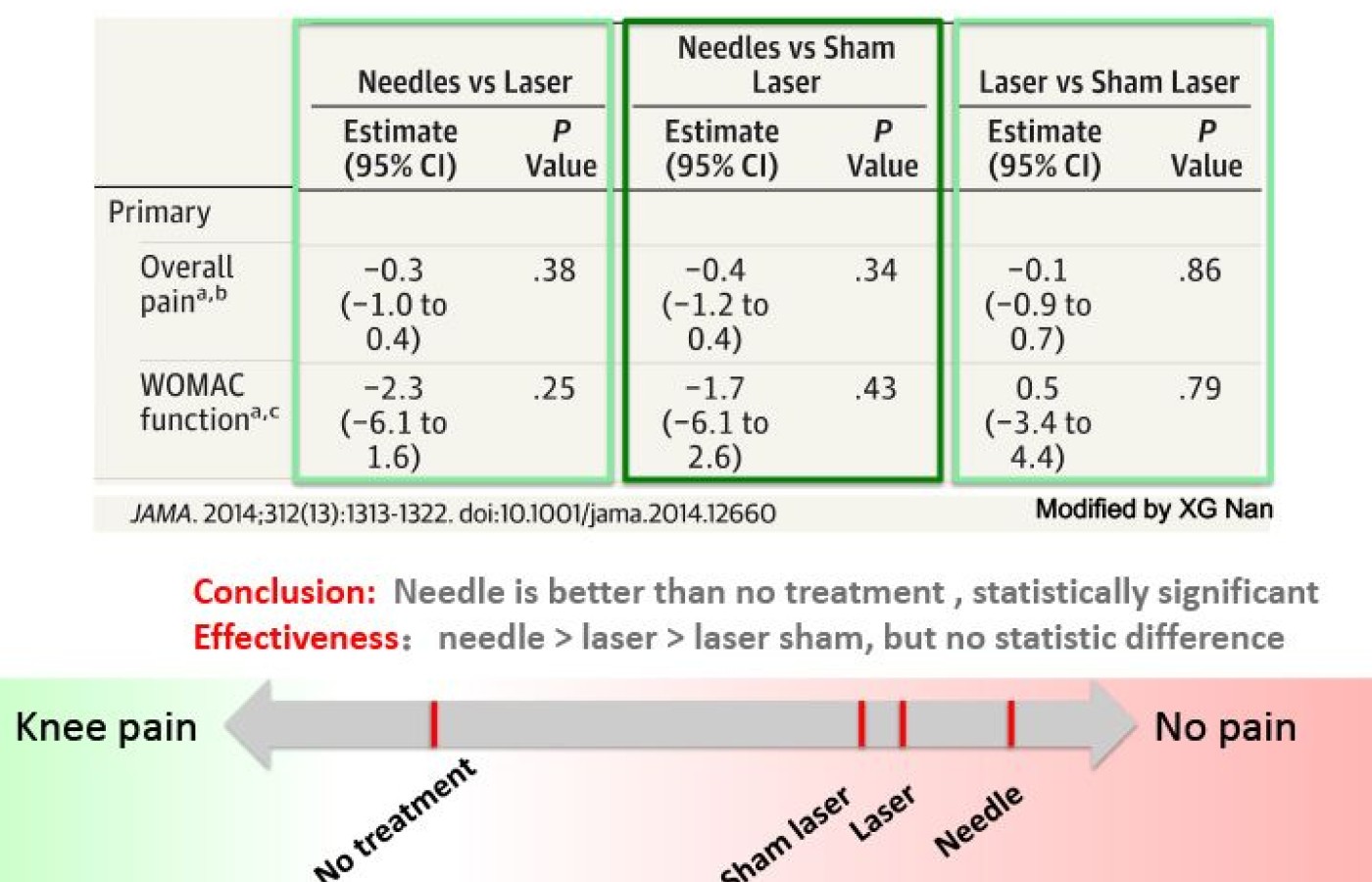The most important relationship I seek to nurture in the treatment room is the one a patient has with their own body. We live in a culture that teaches us to override pain, defer to outside authority, and push through discomfort. Patients often arrive hoping I can “fix” them, but the truth is, we can’t do the work for them. We can offer guidance, insight and support, but healing requires their full participation.
Can Acupuncture Treat Knee Pain?
Recently, an article in the Journal of the American Medical Association concluded that, "neither laser nor needle acupuncture conferred benefit over sham for pain or function" among older chronic knee pain patients. We, the practitioners of acupuncture and more broadly, Traditional Chinese Medicine (TCM), believe this conclusion is premature. There have been several thousand years of acupuncture practice in history. Acupuncturists' observation, patients' feedback, many previous clinical trials, as well as basic researche, all suggest that acupuncture could effectively treat knee pain.
There are several flaws in the design of this article, which we will itemize and address below. In general, the key reasons are the lack of an appropriate sham needle control in the trial and poorly designed protocol and insufficient power of test, as well as exaggerated data interpretation.
This study demonstrates better effectiveness of needle acupuncture over no treatment control. This is consistent with observations in previous clinical trials and real clinical practice. Logically, this does not argue against needle acupuncture as a potential therapy for treating chronic knee pain.
The primary goal of this trial is to determine the efficacy of laser treatment, not needle acupuncture, in treating chronic knee pain, as clearly evidenced by authors own trial protocols and publications. A negative result is concluded from the data, that is, laser treatment was shown not to be better than sham laser treatment or needle acupuncture.
The final conclusion of this study states that both needle acupuncture and laser treatment are not better than sham laser treatment, thus acupuncture should not be recommended for patients with chronic knee pain. This conclusion is ungrounded, and quite frankly does not make sense. Sham laser treatment is not a valid control for needle acupuncture, thus the comparison is invalid.
The acupuncture protocol in this trial is poorly designed and does not reflect real clinical practice and management of patients with knee pain. Acupuncture point selection, acupuncture dose and frequency, time course, and evaluation points was not optimal.
Among the 282 patients who participated in this trial (about 70 per group), with variable health conditions, only 54 patients completed needle acupuncture treatment (less than 1 treatment per week, for 12 weeks). This small sample of patients does not provide enough statistical power to test the difference between acupuncture and sham treatments.
Twelve months is too long a time-peirod for a second point of follow-up, considering the treatment concluded at the end of 12-weeks. Moderate or severe chronic knee pain occurs naturally among older patients. A more appropriate follow up regimen would be frequent survey over a shorter time period.
The author over emphasized the strength of Zelen design and ignored its limitation. Despite randomization in the beginning, the usage of Zelen design in this study is not appropriate. For example, different treatment groups are not equally blinded during the trial, which will exert variable placebo or even nocebo effects and eventually lead to unfair among-group comparisons. Furthermore, 19% of the patients that refused needle acupuncture were analyzed as receiving the treatment. This is not an accurate comparison by any means.
This trial includes patients older than 50 years with moderate or severe chromic knee pain and the potential benefit effect of acupuncture on younger patients or older patients with mild knee pain cannot be ruled out.
Since publication, there have been a lot of debates around the efficacy of needle acupuncture. The investigators of this trial appeared on several public interviews to promote their negative findings on acupuncture and recommend their physical therapies to the patients. However, based on above analysis, we think the conclusion of this trial is premature and editors of JAMA should re-evaluate this report.

Editor's Note: For more information about this recent study in the Journal of the American Medicial Association, please see the July 2015 issue of Acupuncture Today at acupuncturetoday.com and the article, "Chinese Doctors Poke Holes in Australian Study."



